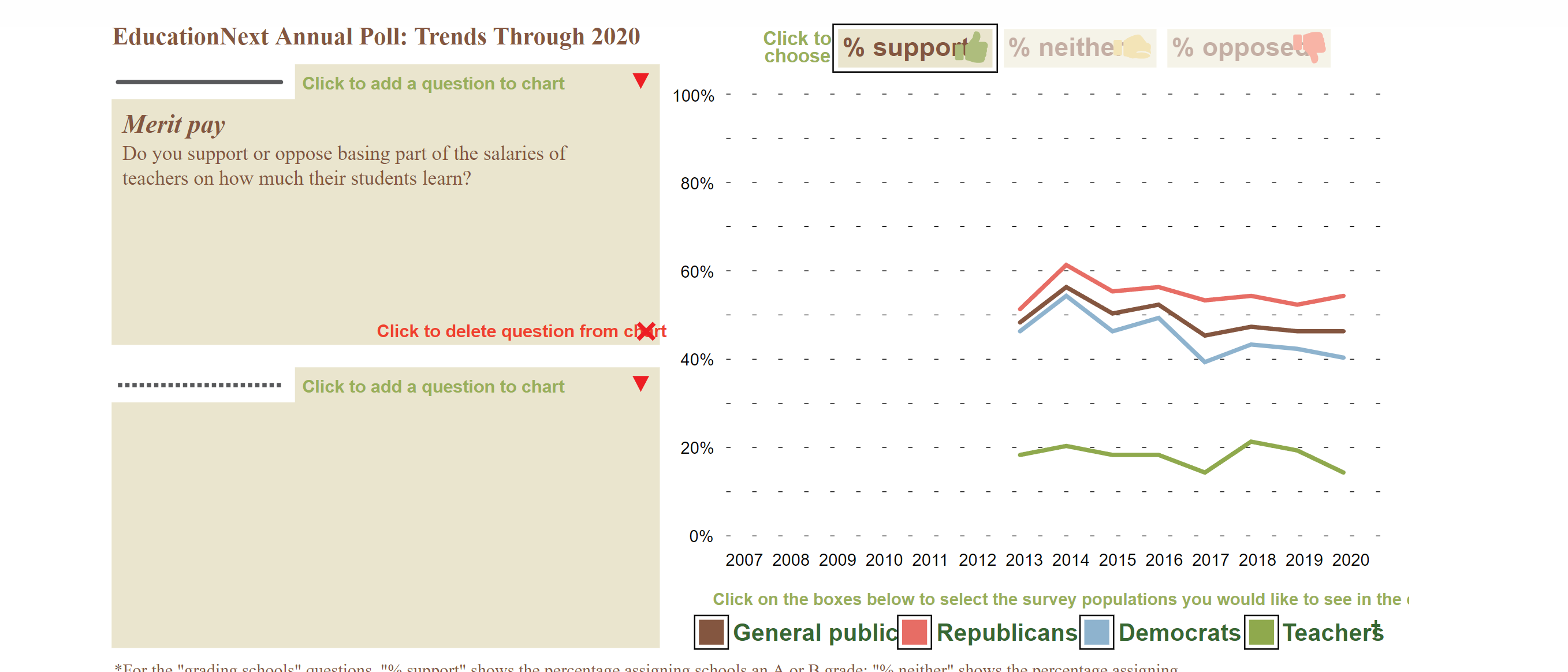I’ve found this subject entirely too annoying for an article, but anyone who follows me on Twitter knows my counterprogramming.
- Schools should never have been closed, and anyone who ever called for their closing loses their right to bitch when they didn’t reopen.
- Schools remained closed where a plurality of parents preferred remote education (with a secondary factor being Dem governor restrictions making hybrid the only inperson option)
- Teachers went back to work everywhere when schools were opened.
- Union rhetoric was offensive but irrelevant to school instruction decisions.
These all seem quite obvious, but apart from Andrew Smarick, fivethirtyeight, Martin West, and anyone else who actually looked at survey data and revealed preferences, most media folks act as if American parents are furious at teachers for keeping schools closed.
But folks who see Randi Weingarten as the all-powerful anti-Christ should wonder why, if politicians and policy folks bend so easily to union will, so many states quickly banned or limited remote education for fall 2021.
California, Massachusetts, New Jersey, Virginia, Connecticut, Illinois, Oregon, Rhode Island –all blue states, all closed for much of last year, and all placing significant restrictions on remote learning for the new school year. So far as I can ascertain, union opposition was either muted or non-existent. Parent (not union) outcry forced most states to back off of “in-person only” and offer some form of virtual instruction. But the virtual offerings were rarely what the parents expected. Students had to leave their local schools for online academies. No magnet programs, no pull outs for special ed or language help, and most notably, no sports. This restriction alone cooled a lot of the ardor for remote instruction, particularly among high school students with friends and athletic abilities. More importantly, local schools did not have to respond to parent demand for remote instruction. They could return to “normal”, or at least as normal as masks and quarantines allowed.
It’s beyond my scope to do a full comparison, but I first started looking into this when I noticed that a number of states had schools in remote mode already, and none of these states had established strict policies requiring in-person instruction. New Hampshire tried to ban remote learning much later, in September, but met resistance and failed and now many schools are in remote. Colorado deliberately left decisions on remote instruction up to schools, which gave a number of Denver schools the option to switch to remote due to staffing shortages. North Carolina explicitly allowed districts to switch from in-person to remote and a number of schools began fall 2021 in remote. New Mexico left it up to districts and many are in remote. (In contrast, a Massachusetts school tried to go to remote for November and was explicitly ordered back to school by the MA BOE.)
These are all blue states, most of whom have Democrat governors, all of whom were routinely blasted by conservative media as in thrall to their lazy teachers unions. But a number of these states took advantage of the hopeful period in the early days of the vaccine to take a strict line on remote education and they did so in a manner that makes it clear they considered parent demands, not union demands, the problematic element.
As I mentioned at the beginning, the blue state push to end remote education is far more consistent with my analysis of school closures. During the 20-21 school year, many blue state governors made the serious mistake of banning in-person instruction or making restrictions for opening schools so onerous that remote instruction was preferable to the hybrid bastardization needed for inperson schooling. When they finally opened schools, they were still bound by their stated deference to parental choice, despite–or perhaps because–surveys showed consistently that 75% or more of white parents but just half or fewer of non-white parents wanted schools open for instruction. Blue state schools with longer than average closures were almost entirely in majority non-white districts. White parents, who pay most of the taxes in those non-white districts, were apoplectic.
It’s not terribly good optics to point out, but the simple truth is that remote instruction was bad for the very students whose parents were most likely to support remote instruction. Black and Hispanic parents (as well as a large number of Asian parents) are even now more likely to demand remote instruction.
The only solution to saving these kids was preventing the parents from making a bad choice by taking away remote education–or at least making it wildly less attractive. Wise were the states that took away parent choice in this matter.
Note again that union opposition to these actions was apparently non-existent, or at least not reported on. The NEA called, unsuccessfully, for student vaccine mandates, but didn’t resist the return to in-person instruction.
In addition to the “Ed was Right About the Pandemic” brownie points factor, I feel that not enough attention has been given to the importance of these legislative mandates. Legislatures so rarely seem to do anything productive, but whether you agree about the parental choice factor or blame the Mean Weingarten for school closure, the legislatures took advantage of a narrow window of opportunity to act. In that brief period of time when everyone, left and right, thought that the vaccine would end covid19, the state legislatures or departments of education most hamstrung by closed schools made sure that remote education couldn’t easily be re-instated.
I loathe teaching in masks all day. The insane NPI theater we are forced to undergo has caused me possibly permanent hoarseness. But given the resurgence of the Delta virus and the left’s insane obsession with safety theater, those of us who were infuriated by remote education–regardless of who we hold responsible–should be profoundly grateful if we live in those states. I am certain we’d all be back in permanent remote education without their surprisingly decisive action.









